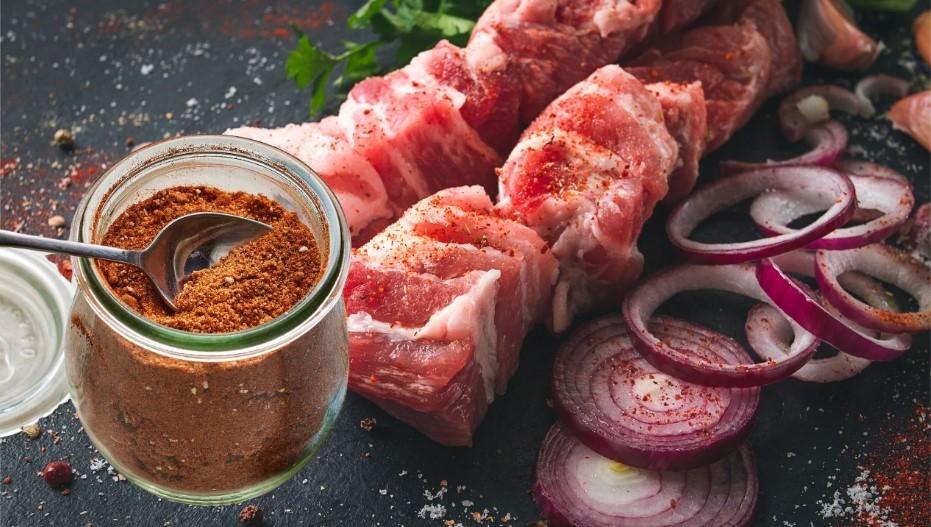BBQ Spices are the heart and soul of any barbecue dish. They elevate simple cuts of meat and vegetables into mouthwatering masterpieces bursting with flavor. Whether you prefer smoky, sweet, spicy, or a balanced mix of everything, the right combination of spices can take your grilling to the next level. From traditional dry rubs to creative blends, BBQ spices bring out the best in every ingredient, leaving a lasting impression on anyone lucky enough to grab a plate. Let’s explore the world of BBQ spices and uncover the secrets to crafting irresistible flavors!
Exploring BBQ Seasoning Powder: A Versatile Ingredient
BBQ seasoning powder is a staple for crafting bold and unforgettable flavors. Its versatility makes it an essential ingredient in kitchens and outdoor grills alike. Here’s how you can use BBQ seasoning powder to elevate your dishes in 9 simple steps:
- Selecting the Right Blend
Choose a BBQ seasoning powder that complements your preferred flavor profile, whether it’s smoky, sweet, spicy, or a combination of these.
- Preparing Your Protein
Clean and pat dry your meat, ensuring it’s moist enough for the seasoning to adhere but not overly wet.
- Even Coating
Generously sprinkle the seasoning powder over the surface of your protein, ensuring all areas are evenly coated for consistent flavor.
- Marination Time
Allow the seasoning to sit on the protein for at least 30 minutes or overnight for deeper flavor penetration.
- Vegetable Enhancement
Toss your vegetables in a mixture of BBQ seasoning powder and olive oil before grilling or roasting for a savory kick.
- Adding to Dry Rubs
Combine BBQ seasoning powder with other spices to create a custom dry rub that adds complexity to your dishes.
- Layering Flavors
Use the seasoning in multiple cooking stages, such as pre-cooking marinades and post-cooking finishes, to build layers of flavor.
- Experimenting with Non-Grilled Dishes
Sprinkle BBQ seasoning powder into soups, stews, or popcorn to give everyday foods a smoky and exciting twist.
- Mixing with Sauces
Incorporate the seasoning powder into barbecue sauces or glazes for a well-rounded, robust flavor that ties your dish together.
With these tips, BBQ seasoning powder can transform even the simplest recipe into a flavorful masterpiece that delights the senses.
Essential BBQ Seasoning Ingredients: Building the Perfect Blend
Creating the perfect BBQ seasoning starts with the basics. Here are the must-have ingredients in most blends, with room to customize based on your taste:
- Salt & Sugar – A balance of salty and sweet flavors is key to locking in moisture and enhancing taste.
- Paprika – This staple adds smokiness and vibrant color. Choose between regular, smoked, or sweet paprika.
- Garlic Powder & Onion Powder – These aromatics add depth and a savory punch.
- Black Pepper – Provides a subtle spice and complexity.
- Cayenne Pepper – Perfect for heat lovers; adjust the amount to your spice tolerance.
- Herbs – Dried thyme, oregano, or rosemary enhance the blend with earthy undertones.
Feel free to experiment with additions like cumin, mustard powder, or chili powder to make your mix unique.
How to Make a Simple BBQ Seasoning Recipe at Home
Ingredients You’ll Need
- 2 tablespoons paprika (regular, smoked, or sweet)
- 1 tablespoon garlic powder
- 1 tablespoon onion powder
- 1 tablespoon brown sugar
- 1 teaspoon black pepper
- 1 teaspoon salt
- ½ teaspoon cayenne pepper (optional, for heat)
- ½ teaspoon dried thyme (or your preferred dried herb)
Instructions
- Measure Your Ingredients
Gather all the ingredients and measure them according to the quantities listed above. Adjust any spices to match your taste preferences.
- Combine Spices
Use a small mixing bowl to combine all the measured spices. Make sure everything is evenly distributed to ensure a balanced flavor.
- Store in an Airtight Container
Transfer the seasoning mix to an airtight jar or container. Store it in a cool, dark place to preserve its freshness and potency.
- Use as Needed
Sprinkle the BBQ seasoning generously on chicken, pork, ribs, or vegetables before grilling or roasting for a delicious smoky, savory flavor.
Feel free to customize this recipe to create a signature BBQ seasoning that suits your unique palate!
Award-Winning BBQ Rub Recipes: Secrets to Success
Creating an award-winning BBQ rub requires the perfect balance of spices, a dash of creativity, and attention to detail. Follow these step-by-step secrets to ensure your rub will impress every time:
- Start with a Quality Base
Begin with staples like salt and sugar, which act as carriers for the other flavors. Brown sugar is a popular choice as it adds a hint of sweetness and helps create a caramelized crust when grilling or smoking.
- Layer the Flavor Profiles
Add spices that provide depth and complexity. Paprika offers vibrant color and mild sweetness, while garlic and onion powder bring savory notes. Incorporate chili powder or cayenne pepper for a subtle kick of heat.
- Include Herbs for Aromatics
Dried herbs such as oregano, thyme, or rosemary can elevate the aroma and add earthy undertones to your rub. Ensure these are finely ground for even distribution.
- Balance with Acidity
For a tangy edge, consider incorporating dried lime or lemon zest. This adds brightness and helps cut through the richness of the meat.
- Customize to Stand Out
Create a signature touch by adding unique ingredients like ground coffee for a smoky bitterness or cocoa powder for a subtle, rich complexity. Experiment with proportions to fit your desired flavor profile.
- Test and Refine Your Recipe
Before using your rub on a large cut of meat, test it on a small sample. Adjust your recipe based on taste, balancing heat, sweetness, and saltiness until you achieve your ideal mix.
- Store Properly
Once perfected, store your rub in an airtight container to keep it fresh. Label the container and indicate the date to manage its shelf life.
With these steps, you can craft a BBQ rub that’s not only flavorful but also award-worthy, making every grilling session a memorable culinary experience!
Perfecting BBQ Rubs for Chicken: A Step-by-Step Guide
Creating the perfect BBQ rub for chicken requires attention to ingredients, balance, and technique. Follow these steps to craft a rub that enhances the flavor of your chicken while complementing your cooking style.
1. Choose the Right Base Ingredients
- Salt: Start with a base of kosher or sea salt to season the meat thoroughly.
- Sugar: Add brown or white sugar to balance the flavors and create a caramelized crust during cooking.
- Spices: Use common spices like paprika, garlic powder, and onion powder as the foundation.
2. Experiment with Flavor Enhancers
- Heat: Add cayenne pepper or chili powder for a spicy kick.
- Herbs: Include dried rosemary, thyme, or oregano for earthy undertones.
- Citrus Zest: Incorporate lemon or orange zest for a fresh, tangy twist.
3. Test for Balance
- Apply a small amount of your rub to a single chicken piece before committing to the entire batch.
- Cook and taste, adjusting saltiness, sweetness, or spiciness based on your preference.
4. Customize for Cooking Style
- Grilled Chicken: Add smoked paprika for a charred and smoky flavor.
- Roasted Chicken: Use herbs like sage and parsley for a more subtle, oven-friendly rub.
5. Store and Reuse
- Keep leftover rub in a sealed container, away from heat and moisture.
- Label the container and include a date for freshness tracking.
Perfecting your BBQ rub for chicken takes practice, but these steps will guide you toward creating a mix that’s flavorful, versatile, and perfectly tailored to your taste buds.
The Best BBQ Seasoning Recipe for Chicken Lovers
Ingredients
- 2 tablespoons smoked paprika
- 1 tablespoon garlic powder
- 1 tablespoon onion powder
- 1 tablespoon brown sugar
- 2 teaspoons chili powder
- 1 teaspoon cumin
- 1 teaspoon dried oregano
- 1 teaspoon ground black pepper
- 1 teaspoon kosher salt
- 1/2 teaspoon cayenne pepper (optional, for extra heat)
Instructions
- Measure and Mix
- Measure out all ingredients into a medium-sized mixing bowl.
- Use a fork or whisk to combine them evenly.
- Customize the Blend
- Adjust the cayenne pepper to control the spice level.
- Add an extra pinch of sugar for a sweeter rub or reduce salt if watching sodium intake.
- Apply Generously to Chicken
- Coat chicken pieces with the rub evenly, ensuring each piece is well-covered.
- For best results, apply the rub and allow the chicken to marinate for at least 30 minutes—or overnight for deeper flavor.
- Save for Later
- Store leftover seasoning in an airtight container for up to six months.
- Keep in a cool, dry place to preserve freshness.
This BBQ rub recipe combines a perfect balance of smoky, sweet, and spicy flavors, making it a must-try for every chicken lover. It’s versatile enough for grilling, baking, or even slow cooking!
BBQ Spices in Pakistan: A Blend of Tradition and Flavor
BBQ spices in Pakistan take cues from traditional flavors like cumin, coriander, garam masala, and turmeric. These spices are often paired with yogurt-based marinades for chicken tikka or desi-style BBQ.
Pakistani BBQ, with its signature smoky aroma and bold spices, has grown into its own culinary category—offering inspiration for fusion BBQ recipes to try on your own grill.
Tips for Storing and Using BBQ Seasoning for Maximum Freshness
To keep your spice blends fresh:
- Use airtight containers to avoid exposure to moisture.
- Store in a cool, dark place to preserve flavor and potency.
- Label each blend with its creation date and aim to use it within six months.
Pro tip: If your seasonings lose their aroma, refresh them by lightly toasting them in a dry pan before use.
The Difference Between Dry Rubs and BBQ Seasoning
| Feature | Dry Rubs | BBQ Seasoning |
|---|---|---|
| Usage | Applied directly to meat before cooking to create a crust or enhance flavor. | Used as a general-purpose seasoning for meats, vegetables, or sauces. |
| Texture | Coarser, often with larger spice particles for a crusty exterior. | Finer blend for even dispersion over various foods. |
| Ingredients | Typically includes salt, sugar, and bold spices like paprika or black pepper. | May include a broader range of spices and herbs for versatility. |
| Function | Enhances the texture and surface flavor during grilling or smoking. | Adds foundational flavor to food either before or after cooking. |
| Application | Generously massaged into raw meat. | Sprinkled or mixed into recipes as needed. |
Both dry rubs and BBQ seasonings are essential tools for enhancing flavors in barbecue, but they are used in distinct ways depending on the desired outcome. Understanding these differences can help elevate your grilling experience.
How to Customize BBQ Rubs for Your Taste Preferences
Not all BBQ rubs need to follow a strict recipe. Here’s how you can customize your blend to match your preferences:
- Add more sugar for sweetness.
- Increase chili powder or cayenne for heat.
- Mix in citrus zest for a tangy twist.
Popular BBQ Rub Recipes for Beginners and Experts
1. Classic All-Purpose BBQ Rub
Perfect for beginners, this rub strikes a balance of sweet, savory, and spicy flavors, making it versatile for various types of meat.
Ingredients:
- 1/4 cup brown sugar
- 1/4 cup paprika
- 2 tbsp black pepper
- 2 tbsp kosher salt
- 1 tbsp garlic powder
- 1 tbsp onion powder
- 1/2 tbsp cayenne pepper
Instructions:
- Combine all ingredients in a mixing bowl.
- Stir thoroughly to ensure the spices are evenly distributed.
- Store in an airtight container for up to three months.
- Liberally apply the rub to your meat, pressing it into the surface for optimal adhesion.
2. Smoky & Spicy Rub for Experts
Ideal for those seeking bold flavors, this rub brings a deeper smoky profile with an extra kick of spice, ideal for ribs or brisket.
Ingredients:
- 1/4 cup dark brown sugar
- 2 tbsp smoked paprika
- 2 tbsp chili powder
- 1 tbsp ground cumin
- 1 tbsp kosher salt
- 1 tbsp black pepper
- 1 tbsp mustard powder
- 1/2 tsp chipotle powder (or adjust for heat preference)
Instructions:
- Start by whisking all the ingredients in a large bowl to prevent clumps.
- Taste the mixture and adjust the chipotle or chili powder for desired spice levels.
- Store it in a cool, dry place in an airtight jar for future use.
- Before applying, pat your meat dry and generously coat it with the rub, ensuring it evenly sticks to maximize flavor.
These step-by-step recipes cater to different skill levels, helping everyone up their BBQ game and experiment with unique flavor profiles!
Exploring Regional BBQ Spices: From Texas to Pakistan
BBQ rubs are a matter of pride in different regions:
- Texas Style – Simple, robust flavors from salt, black pepper, and garlic.
- Kansas City Style – Sweet rubs with plenty of brown sugar and paprika.
- Pakistani Style – A fusion of garlic, coriander, cumin, and chili for bold, aromatic flavor.
Experimenting with different regional influences expands your seasoning repertoire.
Expert Tips for Using BBQ Spices to Enhance Your Grilling
Here are a few tricks to ensure your spices work their magic:
- Pair aromatic rubs with milder meats like chicken or pork.
- Don’t over-season—less is often more.
- Layer flavors by combining a dry rub with a separate marinade or basting sauce.
Conclusion
Mastering the art of BBQ spices is a rewarding journey that adds depth and character to your grilling adventures. By exploring regional techniques, experimenting with bold flavor combinations, and applying expert tips, you can create unforgettable dishes that impress family and friends alike. Whether you’re a seasoned pitmaster or just starting out, the endless possibilities of BBQ seasoning will inspire creativity and fuel your passion for the perfect grill. Fire up the grill, grab your favorite rub, and savor the delicious results!
FAQs
Q: What is the difference between a dry rub and a marinade?
A dry rub is a mixture of spices and herbs applied directly to the surface of the meat, creating a flavorful crust when grilled. A marinade, on the other hand, is a liquid mixture that typically includes oil, acid, and seasonings used to tenderize and infuse flavor into the meat over time.
Q: Can I make my own BBQ spice blends?
Absolutely! Creating your own blends allows you to tailor the flavors to your preferences. Start with a base of salt, pepper, and sugar, then experiment with spices like paprika, garlic powder, cumin, or cayenne to craft a unique combination.
Q: How long should I leave a rub on the meat before grilling?
For optimal flavor, you can apply a rub 15 minutes to an hour before grilling. For deeper penetration, especially with larger cuts of meat, consider seasoning several hours in advance or even overnight.
Q: Are there specific spices that work best for certain types of meat?
Yes, certain spices complement specific meats. For example, smoky paprika and cumin pair well with beef, while sweeter blends with cinnamon or brown sugar enhance pork. Chicken offers a versatile canvas that works with a wide range of spices.
Q: Can I reuse leftover rub mixes?
It’s best to avoid reusing rubs that have come into contact with raw meat to prevent cross-contamination. Always prepare rubs in separate containers and discard any remaining after use.



